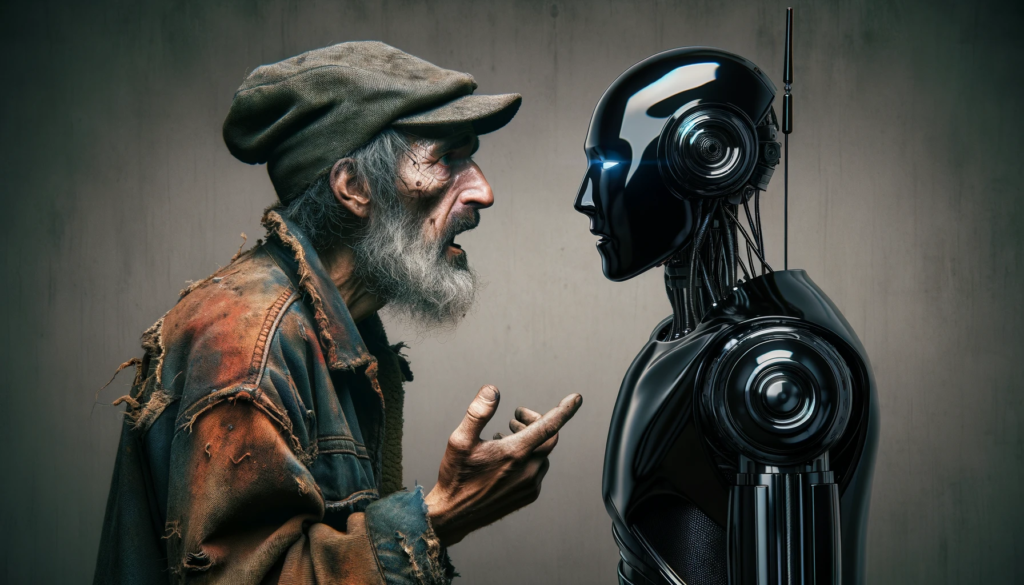AI and Your Job: Threat or Opportunity?

A few years back, I worked at a school where it took a whole week just to figure out teachers’ pay. Our secretary would spend hours and hours typing numbers into an Excel sheet. She’d double-check, triple-check, only to find some numbers still didn’t add up because a holiday messed with the math. Finally, after wrestling with formulas and cells, she’d print out those freaking payment slips.
That’s when I thought, “Hey, I know some programming. Why not make this easier?” Two months later, my application was ready. It did all the hard stuff—math, tax changes, holiday adjustments, and even printing pay slips.
Here’s the cool part: what used to take at least a week now took just a few minutes. And it wasn’t just about making things faster; it was about letting people do work that really mattered.
Now, let’s take a step back. We hear a lot about how AI is changing how we work. It’s easy to get scared, but what if we looked at it as a chance to do something new and exciting? To replace some repetitive, boring tasks like endlessly copying and pasting data, sifting through hundreds of customer emails, or—brace yourself—trying to find a bug in 10,000 lines of unformatted, generated SQL code. Yeah, I’m looking at you, Chris*! We all remember those days when you nearly lost your sanity staring at endless queries, buddy.
(*Names have been changed to protect the privacy of former colleagues.)

Imagine the free time you’d suddenly find. Time to actually engage with your customers, unleash your creativity, or finally take that online course you’ve been putting off. No more being just the “Excel Guru,” the “Email Sorting Ninja,” or the “Bug-Hunting Chris.” You could become the “Idea Machine” or the “Customer Whisperer.”
Think it sounds interesting? Let’s dig in.
Your Skills Aren’t Obsolete; They’re Ready for an Upgrade
Just as my app changed the game at a small school, AI has the potential to redefine how we all work. But let’s be clear: it doesn’t make you or your skills irrelevant. If anything, it’s an invitation to level up.
Take chefs, for example. No machine can match the artistry of a well-plated dish. But imagine if a robot took care of chopping or other kitchen tasks that chefs typically dread. The chef could then focus on flavor profiles, plating, and other nuances that elevate the dining experience.

What Awaits Beyond Automation
AI will certainly automate many jobs, but it also creates new roles that we can’t even imagine yet. Remember, the steam engine didn’t just replace manual labor; it revolutionized industries and created jobs that didn’t exist before.
Similarly, AI is opening the door to specialized roles that focus on all sorts of intriguing aspects of technology and creativity.
For instance, developers could have an AI buddy to generate code or write unit tests they’d rather avoid like the plague or hunt down those cryptic errors in outdated codebases that everyone’s too scared to touch. Imagine refactoring mountains of code in milliseconds, a task that would typically take an entire team months to tackle.
Web developers and designers could collaborate with AI tools such as Framer or Durable that can whip up wireframes and mockups just from a project brief.
And for authors and the like, AI can be a godsend for outlining new books or coming up with ideas when writer’s block looms.
So, opportunities aren’t disappearing; they’re shifting, evolving, and, in many ways, becoming way more interesting.
Adapt and Flourish
Yes, AI is disruptive. But it’s also an opportunity for reinvention. With routine tasks off your plate, you can focus on honing skills that a machine can’t replicate.
But let’s remember: most game-changers in history started off as disruptors before they became enablers. Picture a guy named Joe back in the day, breaking his back, digging holes, and hauling heavy materials all day long. With the dawn of steam machines, Joe might’ve been terrified at first, thinking,
‘Well, there goes my job.’

But what actually happened?
These machines took over the grunt work, and suddenly, Joe could shift to roles that were way less risky and more rewarding. Maybe he became the guy who operated the machine, or perhaps he moved into a position that was more about quality control and safety checks. This allowed him to focus on aspects that machines couldn’t handle—like adaptability, collaboration, and problem-solving.
Just as people like Joe shifted from physically taxing roles to jobs requiring a human touch, AI can pave the way for us to focus on more creative and meaningful tasks. With AI taking care of the tedious tasks, you can devote your time to mastering skills no bot can touch.
Let’s say you’re a developer. Instead of wasting hours sifting through thousands of lines of legacy code to find that elusive bug—hello, Chris*!—AI can point it out for you. Now you can focus on the creative aspects of coding, like designing a more efficient architecture or improving user experience.
Or maybe you’re in marketing. Forget about manually segmenting email lists; let the algorithm do it while you get down to crafting compelling narratives that genuinely engage your audience.
And if you’re an author, imagine having an AI tool that suggests story arcs or does the initial research, leaving you with the quality time to weave those compelling characters and plot twists. In this brave new world of AI, it’s your creativity, critical thinking, and empathy that’ll make you truly invaluable.
Embrace the Change, Reap the Rewards
Change can be scary, but it’s also inevitable.
The good news is that embracing AI doesn’t mean you have to give something up. It’s actually quite the opposite! By getting on board with AI, you’re preparing yourself for a future where you can focus on what really matters in your job. Who knows, you might just fall in love with your career all over again!
So, next time you hear about AI “taking over,” remember: it’s not a doomsday prophecy. It’s a call to adapt, evolve, and, most importantly, to look forward to the opportunities that lie ahead.





Responses